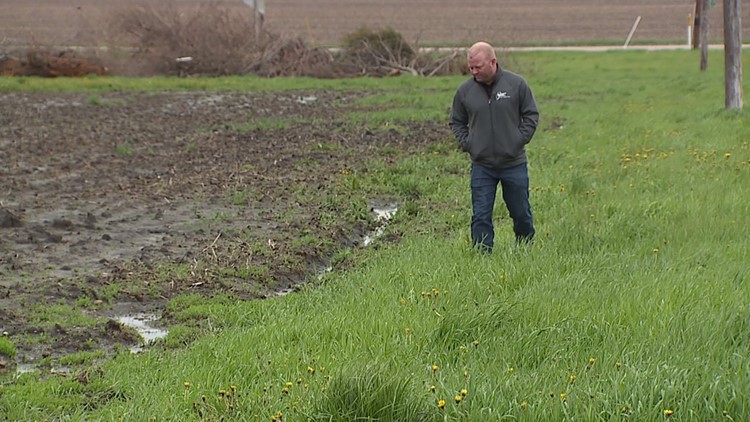PRINCETON, Illinois -- A new poll commissioned by the American Farm Bureau Federation shows that nine in ten farmers say financial issues on the farm, including fear of losing the farm, impact their mental health. Nearly half of those surveyed say it's difficult to access a therapist or see a counselor for mental health services.
Evan Hultine, President of the Bureau County Farm Bureau, said the findings hold true for farmers here. "Number one is economics and our financial stability," he said.
"Farm incomes are down drastically over the last five years. It’s a struggle to try to pencil out how to be profitable right," he said.
Hultine said low commodity prices have been pressured further as the trade war with China continues. On Friday, May 10, President Trump increased tariffs on $200 billion in Chinese goods as negotiations over trade continued in Washington.
All those factors have added an excessive amount of strain on farmers, Hultine said, sometimes with dire consequences.
Leaders at the Bureau County Farm Bureau have seen mental health become an increasingly urgent concern in recent years, he said.
The Bureau County Farm Bureau is now partnering with the Arukah Institute of Healing, a mental health center in Princeton, to make mental health services more accessible for farmers in Bureau, Putnam, Stark, and Marshall Counties.
Executive Director Sarah Scruggs said rural communities and farmers, in particular, are finding it hard to seek and find help.
"The first glaring barrier would be that we are in a mental health professional shortage area. So relative to an urban area, we have about a fifth or a third of the health professionals per capita," she said. "The second thing we really see is there’s widespread depression and anxiety that goes untreated for a long time in our region," in part due to the shortage of mental health professionals, she added.
"The final barrier and this is probably the largest barrier to overcome, is the stigma," she said.
In an informal survey the bureau and Arukah conducted among farmers of Bureau, Putnam, Marshall and Stark Counties in February, "[we] found that 75 percent of farmers and friend or family had struggled themselves or have someone very close to them struggling with the depression and suicidal thoughts. That’s 75 percent. That’s striking," she said.
Moreover, 50-60 percent of farmers self-report that they are embarrassed to reach out, she said.
The bureau has teamed up with the Arukah Institute to put offer a hybrid mental health program combining the traditional "boots on the ground" in-person counseling with tele-health counseling. The goal is to make services more easily accessible, and remove the stigma surrounding mental health.
"We will be recruiting professionals from outside the area that can connect with the farming community, that have rural roots, and setting up virtual counseling appointments via live video, with these tele-health counselors," she explained. "We’re taking away all the barriers, the travel distances."
"So that removes the stigma for farmers that are already coming to the farm bureau multiple times a week to take care of various other business," she said. "Having your truck parked outside of a mental health facility raises a lot of stigma, whereas having your truck parked outside the Farm Bureau building doesn’t."
The program will also provide new ways to access mental health services.
"The other thing we’re doing is to move to is smart-phone based services. So if [farmers] are on a combine, a tractor, in the field, they can receive their services right there," Scruggs said.
The Bureau County Farm Bureau and the Arukah Institute are now seeking federal funding for the farmer behavioral health program. If funding is approved, they hope to have the program up and running in six months.
Hultine acknowledged that fighting the stigma will take a long time. But he hopes the farming community will get to a point where mental health issues are treated as readily as any physical condition.
"If someone has a heart attack and can’t harvest their crop, the neighbors are gonna help. We need to start looking and treating depression and mental health as the same sort of ailment," he said.



